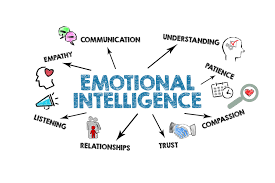The global market for emotional intelligence is a dynamic and highly fragmented arena, with market share being contested by a diverse ecosystem of academic institutions, specialized assessment publishers, a vast community of independent coaches and trainers, and a new generation of technology startups. A detailed Emotional Intelligence Market Share Analysis reveals that a significant foundational share of the market, particularly for the most widely recognized and scientifically validated assessment tools, is held by a small number of specialized publishing and consulting firms. This top tier is led by companies like Multi-Health Systems (MHS), who are the publishers of the highly popular EQ-i 2.0 assessment, which is based on the work of Reuven Bar-On, and other firms that are associated with the major theoretical models of EQ, such as the work of Daniel Goleman or the Mayer-Salovey-Caruso Emotional Intelligence Test (MSCEIT). Their market share is built on the strength of their intellectual property, the decades of research and validation behind their assessment tools, and their global network of certified practitioners who are licensed to administer and interpret these tools.
A second and incredibly large, though highly fragmented, share of the market is held by the massive and global community of independent executive coaches, leadership development consultants, and corporate trainers. This segment is composed of tens of thousands of individual practitioners and small boutique firms who provide the actual delivery of EQ-based training and coaching to the end-user organizations. Their competitive advantage is not in owning the IP of the assessment tools, but in their deep expertise in adult learning, their coaching and facilitation skills, and their ability to build strong, trusted relationships with their clients. They are the essential "last mile" of the industry, translating the theoretical concepts and the assessment data of emotional intelligence into practical, actionable development plans for individuals and teams. While individual players in this segment are small, their collective market share, representing the vast majority of the service delivery revenue, is enormous and is the lifeblood of the entire industry.
Finally, the market share landscape has been completely and irrevocably reshaped in recent years by the emergence of a new and rapidly growing force: the technology platforms. A new and dynamic share of the market is being captured by a host of venture-backed startups and established EdTech and wellness companies that are building scalable, technology-driven solutions for EQ development. This is a diverse and fast-moving category. It includes a wave of mobile applications that are focused on mindfulness, meditation, and emotional regulation, such as Calm and Headspace, which are increasingly being sold into the corporate wellness market. It includes e-learning platforms that offer a vast library of on-demand, video-based courses on soft skills and emotional intelligence. And it includes a new generation of AI-powered startups that are building tools for real-time communication coaching and sentiment analysis. These tech players are disrupting the traditional, high-touch, and often expensive services model of the industry by offering a more scalable, affordable, and data-centric approach, and they represent the most dynamic and high-growth segment of the entire competitive landscape.
Top Trending Regional Reports -
 Free IL
Free IL


